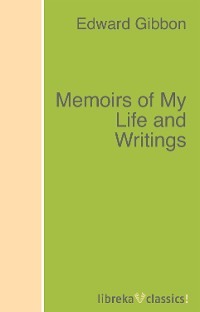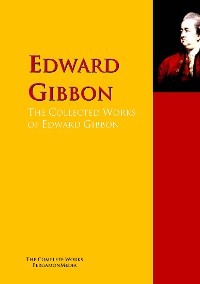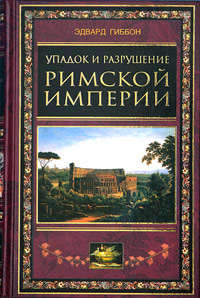 полная версия
полная версияPrivate Letters of Edward Gibbon (1753-1794) Volume 1 (of 2)
Lord Litchfield[47] is angry at my writing to him. I am sorry for it and surprized at it at the same time. I could discover many reasons why he might not serve me, none that He could be angry at my application to him, especially as that application was made with all the decency and moderation, I could put into my letter. I should with pleasure have communicated it to you, and known your sentiments, but as we imagined here that the D. of B. would go away very soon, I was afraid that delay might destroy the very small hopes I had. Indeed I thought it the less necessary as I knew already your opinion both as to the eligibility of the thing, and the propriety of an application to the Noble Lord. I own the giving him no direction was not a happy specimen of my Secretarial acuracy.
As to my friends, Mallets, Worsleys,[48] Portens, &c. &c. &c. &c., I must plead guilty, very guilty indeed to the indictment. I will not take up my time and yours in vain excuses, my best and only excuse ought to be and shall be, more exactness for the future. Notwithstanding Mrs. M.'s outrageousness she is the person I trouble my head the least about. However I propose writing to her to-night tho' with great repugnance and difficulty. I neither chuse to go to the Bastille for sending her observations upon the French government, nor to fill my letter full of romantick protestations of attachment and friendship, which I do not feel for her, and which she feels for nobody. As to La Motte I cannot forgive him his complaints, when I have so much juster ones to make of him. Follow his advice I most certainly did not, since he never would give me any, tho' I asked him several times in as intelligible terms as I could properly make use of. I was forced to have recourse to my other friends, to Madame Bontems, to M. d'Augney and to M. de Mirabeau,[49] and their directions have been very usefull to me. La Motte always shewed me such a dryness, such an unwillingness to connect himself at all with me, that I have been at last obliged to drop him almost entirely.
CONDUCT OF THE DUKE OF BEDFORD.
Do you think, dear Sir, that I would have stood upon the formality of a visit with the great Duke? Besides I had no occasion to do it. He returned mine the very next day. Since that time I have presented myself at his door once every week or ten days without being ever let in or hearing a syllable from him. What can I do more than sit down quiet and wonder at his behavior?
I have enquired into Mr. Thos. Bradley's affair. Mr. Taaffe is no longer at Mr. George Woolfe's. He is in a much safer place, in the Châtelet, a prison of Paris for debt. He has settled with his English Creditors and given up his estate at Jamaica for the payment of his debts. He wants to compromise with his other Creditors who are very numerous, (but as they are convinced he wants to cheat them and that he only offers the same estate after the other debts are cleared, which cannot be in less than ten or fifteen years) they will hear of no compromise. All that Mr. Bradley could do, would be to join with those Creditors in case they should at last agree to his proposals. Mr. Taaffe's scheme is to keep another estate at Jamaica clear of his creditors. They on their side want to starve him into giving up that likewise. If Mr. Bradley thinks it worth his while to push the affair, it will be attended with some trouble and expence. He must impower somebody at Paris to act in his name, and in order to do so a journey to London will be necessary where he must find out Mr. Benjamin Bobbin an Attorney beyond the Royal Exchange, who does all that kind of business, and who will draw up a letter of attorney in French for him, and get it certified by the French ambassador; a formality absolutely necessary to give it weight in this country. As to his Attorney at Paris, the necessary delays of the Law will render it proper to have a man who is established at * * *
I cannot therefore offer myself, (which I should otherwise do with great pleasure,) and I should hope Mr. Foley would be willing as he is certainly able to undertake it. I wish I could give Mr. Bradley a better account, but this seems to be the true state of the case.
My losses at Play have not been very considerable since I have been here, they amount to seven Livres lost one night at Picquet. It is indeed rather my good luck than my prudence that saves me. All my Societies are houses where I never see a card, so that I do not fall because I have no temptation. I find Paris however very expensive. One article which, tho' it encreases my draughts at present, will diminish them hereafter is cloathes, ruffles, silk stockings, &c., which after serious deliberation, I thought I had better make a provision of at this Capital of the Fashionable world. However as I begin to have pretty well seen Paris, I propose (if you have no objection) setting out about the eighth of next month, & going thro' Dijon and Besançon to Lausanne to pass two or three quiet and cheap months with my old friends there on my way to Italy. Adieu, Dear Sir, my paper fails me and I would avoid a cover.
I am, Dear Sir,Yours most affectionately,E. G.24.
To his Stepmother
Besançon, May the 18th, 1763.Dear Madam,
You will give me leave according to an article of our treaty, to write you only three lines, just to tell that I am well and where I am.
Upon my arrival at Besançon I saw Mr. Acton[50] directly. He has received me with a degree not only of civility but of friendship which astonished me, insisted upon my taking an appartment in his house, and since my seeing him, himself and his three sons (our Southampton friend is one) have been only taken up in procuring me every kind of amusement, in carrying me to all my father's friends here who have all enquired much after him, in seeing publick places, and in parties at home and abroad. The only inconvenience is that I have not an instant to myself and that I am forced to write this scrawl at half an hour after one in the morning. The day after to-morrow I set out for Lausanne, where I shall be a little quieter. The Acton family desire to be remembered to my father.
I am, Dear Madam,Yours and my father's with the truest affection,E. G., Junior.25.
To his Father
Lausanne, May the 31st, 1763.Dear Sir,
BESANÇON.
I staid four or five days at Besançon longer than I intended, so that I got here only the 25th. It was even with some difficulty that I could disengage myself so soon from Mr. Acton's civilities. Indeed nothing could exceed them. Not only they insisted upon my lodging in the house, but during the time I passed in it, the sole business of the family seemed to be finding out amusements for me. They carried me to the best houses in the place, showed me whatever was worth seeing, and made several parties for me in the country. What I saw of Besançon pleased me so much, that, could I have stayed there without being an inconvenience to them, I should have liked to have stayed a few days or even weeks longer. Mr. Acton is the best sort of man in the world, and is bent on doing everything most agreable. He has a great deal of business, many friends and a very high reputation. He has indeed unluckily been too long out of England to remember his own language, and not long enough in France, to have learnt that of the country. He talked a vast deal of you, and tho' it is so long since you have been there, I have found your memory very fresh & many people who have enquired after you. The two sisters in particular of your écuyer (I have forgot their names) talked to me by the hour of their old friend Monsieur de Guibon. As to Acton's wife, you know the character Mrs. Darrel gives of her, and I was sorry to find it is pretty well established at Besançon; but she is certainly a very agreable and sensible woman, and I should have taken her for a very good-natured one. If she is a termagant I never saw such a Wolf in sheep's cloathing.
At last, Dear Sir, I am got to Lausanne and established very agreably among my old acquaintance, and in a way of life I like extremely, a moderate mixture of society and study. News from a place so very quiet and obscure you cannot expect. I have however seen an old friend of ours who has just left us; Sir Willoughby Aston.[51] He had been here about a twelfmonth with Lady Aston and his numerous [family], and are just gone to Tours in France. Nobody could guess why. They lived very cheap here; Lady Aston had as many rubbers of Whist, and Sir Willoughby as many bottles of wine every day as they wanted. What could they have more? Sir Willoughby asked much after you, and was glad to see me to talk over Winchester camp and Reading court martial.
A propos of our militia, I have seen that of Switzerland. Their General review (of the Lausanne Battalion) was last Monday, Tuesday and Wednesday. I attended all three from beginning to end, and making all proper allowances saw them with great pleasure. They are only exercised twelve days in the year, and tho' many of them have been in foreign services, yet you know, Dear Sir, how very easy it is for a soldier to forget. They went through the manual, fired by divisions and platoons, formed the column, and square, a General discharge and charge: all very decently, and some (especially the Grenadiers) very prettily. I do not compare them to our militia. As we were embodied two or three years, the comparaison would be an affront.
LAUSANNE
I took credit from Mr. Foley upon a Lausanne banker, who is likewise a brother captain of Grenadiers. I have not made use of it yet, and when I do, it shall be as sparing as possible. I have got a few books together, and am busy upon the ancient Geography of Italy and the reviewing my Roman history and antiquities. If you have no objection to leaving me here till the spring, I should like it very much and think it might be of use to me. But I submit the thing entirely to you.
You will be so good, Dear Sir, as to present my sincerest love and duty to Mrs. Gibbon, and my most affectionate compliments to her brothers, and to believe me
Most truly yours,E. Gibbon, Junior.26.
To his Stepmother
Lausanne, June the 18th, 1763.Dear Madam,
If my own laziness did not deprive me of any right to complain, I should say perhaps that it was a great while since I had heard either from you or my father. I have indeed the satisfaction of knowing my father was well the 26th of May, and I hope he is by this time one of the Honorable Verdurers of the forrest of Beer. Pray, a propos of English and county news, who is our Lord Lieutenant? I had the mortification of seeing in the paper that the Duke of Bolton was turned out (I mean had resigned) and that the Marquis of Caernarvon was appointed in his room. I hope it is not true.
You have often heard me talk of Lausanne and of the pleasure I should have in seeing it again. Our imagination generally improves upon those agreable prospects; but I can assure you, my ideas had not heightened any part of this. A beautifull country, great leisure for study, and a very agreable society, make me pass my time very much to my satisfaction. I have found all my old friends here very glad to see me, and my countrymen, who only know the outside of the companies, are amazed at the number of family parties I am asked to every day. Those countrymen (whom I do not reckon as a very important part of my happiness) consist only in a Mr. Sidney and a Mr. Guise.[52] The former (Mrs. Perry's son) is a meer boy, and the second (a Sir John Guise of Gloucestershire's son) is a very sensible well-bred man. Pavillard and I were really glad to see one another. He shewed me his snuff-box which he always carries in a wooden case for fear of spoiling it. I was at first uneasy about my lodging. I did not chuse to see the leg of mutton roasted a second time with a gash in it, and yet I was afraid of disobliging my old friend. Luckily he had got into a new house and had no room for me; so that he himself assisted me in settling in a very agreable family which I was very well acquainted with before. The Husband[53] who is much of a gentleman keeps the Academy, his wife is a charming woman; and the apartments and table are both cheap and good. I should like extremely to pass the winter here, if my father would give me leave. Give me leave to add (for I am sensible you may have suspicions) that no woman is the least concerned in my desire, and that as to any old inclinations,[54] they are so far from subsisting that no one can be more opposite to them at present than myself. This I assure you of upon my word of honor. I hope after that I need say nothing more.
I have just drawn a bill of fifty pounds sterling upon my father. I shall do my utmost to endeavour at Economy, and I hope here my endeavours will be successfull.
Present, Dear Madam, my love and duty to my father and my sincerest compliments to your brothers. Pray let me hear from you or my father soon.
I am, Dear Madam,Most affectionately yours,E. Gibbon.27.
To his Stepmother
Lausanne, August the 6th, 1763.Dear Madam,
HIS OLD LOVE FOR SUZANNE CURCHOD.
I hope I need not assure you how agreable your letters are to me. Letters such as you write would be highly pleasing from an indifferent person, judge of the pleasure they must give me when I receive them from a friend and a mother: I put the friend first and I believe you will not blame me for it. I should be very glad to hear somewhat oftener from my father; But tho' his dislike to letter-writing is inconceivable to me, I see I must be contented with hearing from you that he is well. At this time especially I have no hopes. He must be now (according to my reckoning) in the very midst of Harvest, and I am very sensible, that
When Harvest is in the case
All other business must give place.
You will hardly expect news from me. We are buried in a quiet Solitude, and seem separated from the rest of the universe by a Wall of mountains, whose summits are at this instant covered with snow. I have found most of my old friends well, and made some new ones, and between the society of both, I lead a very agreable life. I could talk to you with great pleasure about them did I not know how very uninteresting an account of people you know nothing of must be to you. I should be glad to know soon whether my father has any objection to my passing the winter here. I do not dissemble that my inclination would make me desire it; but I have a much better tho' as real a motive to alledge to him; a considerable work I am engaged in, which will be a most usefull preparation to my tour of Italy and which I shall not be able to finish sooner. It is a Description of the ancient Geography of Italy, taken from the Original writers. If I go into Italy with a work of that kind tolerably executed, I shall carry every where about with me an accurate and lively idea of the country, and shall have nothing to do but to insert in their proper places my own observations as they tend either to confirm, to confute, or to illustrate what I have met with in books. I should not even despair, but that this mixture of study and observation, properly digested upon my return to England, might produce something not entirely unworthy the eye of the publick on a subject, upon which we have no regular or compleat treatise.
VOLTAIRE AS HOST AND ACTOR.
I made a little excursion some days ago to Geneva, not so much for the sake of the town which I had often seen before, as for a representation of Monsieur de Voltaire's. He lives now entirely at Fernay, a little place in France, but only two leagues from Geneva. He has bought the estate, and built a very pretty tho' small house upon it. After a life passed in courts and Capitals, the Great Voltaire is now become a meer country Gentleman, and even (for the honor of the profession) something of a farmer. He says he never enjoyed so much true happiness. He has got rid of most of his infirmities, and tho' very old and lean, enjoys a much better state of health than he did twenty years ago. His playhouse is very neat and well contrived, situated just by his Chappel, which is far inferior to it, tho', he says himself, que son Christ est du meilleur faiseur de tout le pays de Gex. The play they acted was my favourite Orphan of China. Voltaire himself acted Gengis and Madame Denys Idamè; but I do not know how it happened: either my taste is improved or Voltaire's talents are impaired since I last saw him.[55] He appeared to me now a very ranting unnatural performer. Perhaps indeed, as I was come from Paris, I rather judged him by an unfair comparaison, than by his own independent value. Perhaps too I was too much struck with the ridiculous figure of Voltaire at seventy, acting a Tartar Conqueror with a hollow broken voice, and making love to a very ugly niece of about fifty. The play began at eight in the evening and ended (entertainment and all) about half an hour after eleven. The whole Company was asked to stay and set Down about twelve to a very elegant supper of a hundred Covers. The supper ended about two, the company danced till four, when we broke up, got into our Coaches and came back to Geneva just as the Gates were opened. Shew me in history or fable, a famous poet of Seventy who has acted in his own plays, and has closed the scene with a supper and ball for a hundred people. I think the last is the more extraordinary of the two.
You may imagine how glad I am to hear of the fall of our Tyrant[56] and the accession of a just and righteous prince. Lord —[57] was always our utmost wish, and I have so very good an opinion of him as to believe he will not even plague our enemies to oblige us. I am very glad to hear the battalion addressed him, as you style it, and as I could not sign the general letter, I apprehend a particular compliment to his Lordship cannot displease him. I have accordingly wrote to him this post. My father had formerly some thoughts of resigning the Majority to me. It is a matter of great indifference at present, but if he has a mind to provide against a future storm, I suppose it would be very easily settled at present, and that my friend Poussy (who has never answered me any more than Sir Thomas[58]) would have the Company of course. I wish my father would consider too, whether changes of much greater consequence might not be effected, such as the incorporation of both battalions, &c. But these are only hints.
Present, Dear Madam, my love and duty to my father, my sincerest Compliments to your Brothers, and believe me ever
Most affectionately and entirely yours,E. Gibbon, Junior.28.
To his Father
Lausanne, September the 10th, 1763.Dear Sir,
This morning I received your letter, and according to your desire prepared myself immediately to answer it.
I hardly thought it possible, any letter of yours could have given me so much uneasiness. I am very sensible how many obligations I have to you, and that in this affair you continue to act with your usual goodness to me. If there is any fault it is partly my own and partly that of unhappy circumstances. My expences have been too great for our fortune. I was afraid of it at the time; and tho' I cannot yet see that relative to my situation of travelling and being at Paris I have launched into any extravagancy, the consequences are equally disagreable. But what is past cannot be recalled. With regard, Dear Sir, to the proposal mentioned in your letter; if your own ease or happiness had depended upon it, I should not have hesitated an instant, but as the advantages resulting from it relate only to me you will give me leave to canvass it freely.
I need not say any thing of the great inconvenience of mortgages nor how much they eat up an estate piece meal. We feel it but too sensibly: Sir T. R.'s is particularly disagreable, since he has it in his power to distress us whenever he pleases by calling for his money. I own the thought of increasing it hurts me very much.
DECLINES TO ENTER PARLIAMENT.
The advantages for me would be, your being able to bring me into Parliament, increasing my annuity and enabling me to continue my travels. Give me leave to say, Dear Sir, that the first has very little weight with me. I find my ambition diminish every day, and my preference of a quiet studious life to hurry and business grow upon me. Besides I should imagine the thing almost impossible in the middle of a parliament and at such an interesting period:[59] and if I was in, what could I do? Whether I consulted principle or prudence, every thing seems so unsettled that I might find myself very soon at the tail of an opposition; (and as a total change seems to be the modern maxim of every new Ministry,) in case I had got any thing, I should be reduced to my former situation, with the additional mortification of having just tasted a little more power and plenty. The encreasing my annuity would be certainly very agreable, but as it would be only the difference of passing four or six months every winter in London, I should not think it equivalent. The continuing my travels is the great object. When I am just in view of Italy, to be obliged to give up a scheme which has been always a favourite, would afflict me to the greatest degree.
Would it not be possible, Dear Sir, to think of another scheme? One has come into my head which would set me entirely at my ease without costing you a shilling. It would be to change my annuity into a perpetual rent charge upon the Estate: this I would sell immediately for an annuity upon my own life, which would certainly give me Six hundred pounds a year, would enable me to travel (at least with a small addition) and to live afterwards in a very agreable manner in England. I think I may venture to say I shall never marry, and even supposing that possibility and afterwards the possibility of children; Would this scheme hurt them more than the other? But I submit it entirely to you. In case this proposal should be disagreable to you, you have my full consent to the other. Only give me leave, Dear Sir, to mention one thing. I should be a monster, If I could distrust either your honor or your goodness to me; but I am afraid (excuse the freedom) that Œconomy is not the virtue of our family. A variety of schemes would offer, old incumbrances would appear, and you yourself would be the first surprised to find the sum almost sunk to nothing. I should think that the dividing it might equally suit us both. I should have a fund for my extraordinary expences, which I should be the more interested to husband, as I should know that I could have no pretence to ask for any thing more. You on the other hand, Dear Sir, would be likewise at a certainty with regard both to your expences and mine.
I shall end here, Dear Sir; for I am too much agitated to talk of any thing else: only begging you to excuse the liberty I have taken. Your goodness has encouraged me to it and I think our mutual interest requires it. In case you should approve of my first proposal, I suppose my going over in the Spring will be sufficient. Otherwise, I should be glad to hear from you as soon as possible, that I might set out before winter.
My love and duty are always Mrs. Gibbon's and my sincere compliments wait upon the Brothers.
I am, Dear Sir,With the greatest affection sincerely yours,E. Gibbon, Junior.29.
To his Father
Lausanne, October the 15th, 1763.Dear Sir,
WAYS AND MEANS.
Give me leave to begin with the part of my letter which has given you the most uneasiness, and which is entirely owing to a mistake. As I have no copy of my letter, I cannot exactly recollect my expressions, tho' I am perfectly sure of my meaning. When I mentioned unhappy circumstances I meant only that my expences, tho' not excessive in themselves, appeared great, and were in fact more than what the unhappy circumstances of our estate allowed you to support. That I assure you, Dear Sir, was my only meaning; if my expression was doubtfull, attribute it solely to the agitation of spirits I was in when I wrote. When I reflect on my expences, I do not see, that were I to live last winter over again at Paris, I could, according to the almost necessary extravagance of the age, spend less than I have done. I do not pretend to say that a man of a more exact economy might not have done sometimes the same things for less money, but I am sure there was no one blamable or ridiculous expence. Play in particular, Dear Sir, must have occurred to you, tho' you do not mention it. I give you my word of honor, that since I have left England I have not lost twenty pounds.









